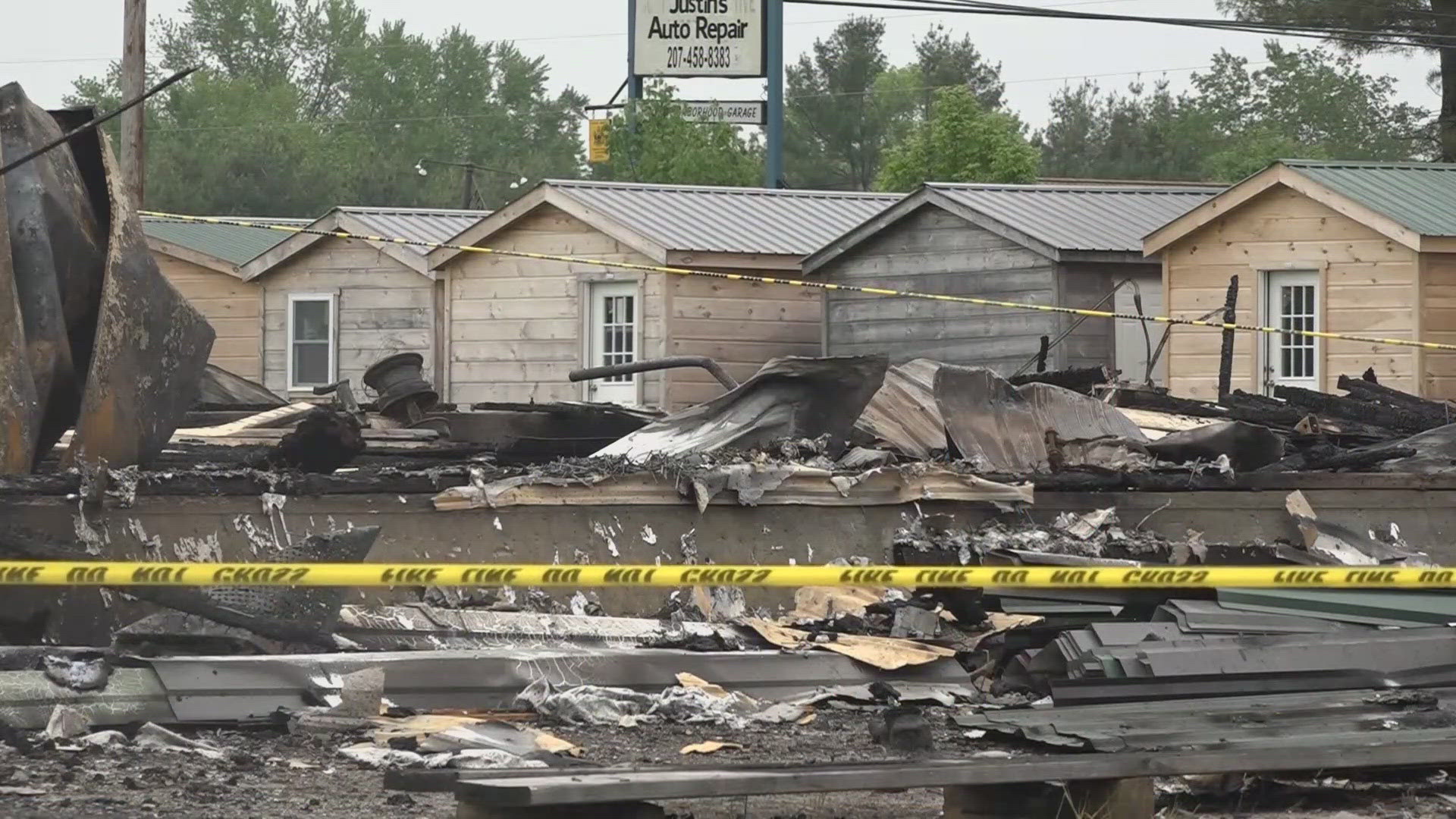BANGOR, Maine — Earlier this week, a massive fire broke out at New England Rent to Own in Chelsea, generating an increased wave of concern about how to safely use lithium-ion batteries.
Investigators from the state fire marshal's office determined lithium-ion batteries stored in an area inside the company's working warehouse were the cause of the blaze. New England Rent to Own's general manager said the batteries were small household tool Milwaukee and DeWalt brand batteries.
Fire safety officials like Bangor Fire Department Assistant Chief Greg Hodge said the batteries are widely used.
"They're going into everything now," he said.
They're in your phones, vaping devices electric scooters, bikes—even in your electric toothbrushes, but if used improperly, lithium-ion batteries can cause a fire.
"We've had an e-bike that burned up ironically right beside station number six," Hodge said.
Hodge said most consumer products that use lithium-ion batteries are generally safe, but damage to the battery can cause it to catch fire.
He also explained that many lithium-ion battery fires are ignited by thermal runaway, which is a chemical reaction that happens when something inside of a lithium-ion battery sparks due to excessive heat, ultimately causing a chain reaction and in the worst cases, an explosion.
Damage to the battery, overcharging, overheating, and battery defects caused by short-circuiting or aging can also all cause a lithium-ion battery fire.
"Within the battery, there's just a little thin sheet that protects between the positive and the negative side, and when you drop your iPad or your phone or whatever, that protective sheet gets damaged," Hodge said. "But you can't see that."
Old Town Fire-Rescue Chief Kyle Mylan said lithium-ion battery fires burn much hotter, longer, and faster than normal battery fires. He also said depending on how big the battery is, like larger batteries that power bikes, scooters, and cars, the fire may be much harder to put out.
"It takes about 10 times the amount of water to extinguish an electronic vehicle fire when compared to a traditional combustion engine fire," Mylan said. "So, if 300 to 500 gallons is what a typical car fire needs to put out, it takes anywhere from 3,000 to 5,000 gallons to put out an electronic vehicle fire."
Mylan warned people to watch for signs that a battery is faulty such as battery overheating and swelling. Hodge said people should use the manufacturer-suggested charging device when charging products and avoid covering products that use lithium-ion batteries with heavy blankets. Both fire officials said it's best to air on the side of caution.
"It's not recommended to charge a lot of these things overnight," Mylan said. "So, if it's something that you're charging in a shop or a garage or something like that, make sure you don't just plug it in and forget about it. Make sure you're monitoring it while it's charging at least occasionally."

